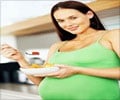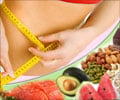Pregnant mothers who consume nuts or nut products like peanut butter daily increase their children's risk of developing asthma by more than 50 percent.
Pregnant mothers who consume nuts or nut products daily increase their children's risk of developing asthma by more than 50 percent over women who rarely or never consume nut products during pregnancy, according to new research.
"We were pretty surprised to see the adverse associations between daily versus rare nut product consumption during pregnancy and symptoms of asthma in children, because we haven't seen this in similar previous studies," said the study's lead author, Saskia M. Willers, M.Sc.The study appeared in the second issue for July of the American Thoracic Society's American Journal of Respiratory and Critical Care Medicine.
While noting that it is "too early to make recommendations of avoidance," Ms. Willers also points out that "it's important for pregnant women to eat healthily, and what is true for many foods is that too much is never good."
Maternal consumption of allergenic foods during pregnancy may increase the risk that the fetuses they carry would become sensitized to certain allergens. Research on the topic, however, has been contradictory and inconclusive
Nearly 4,000 expectant mothers from the Prevention and Incidence of Asthma and Mite Allergy study conducted by the Dutch government completed a dietary questionnaire that asked how often they consumed vegetables, fresh fruit, fish, eggs, milk, milk products, nuts and nut products during the last month. Their children's diets were also assessed at two years of age, and their asthma and allergy symptoms were assessed yearly until eight years of age. By the end of the eight years, the researchers had complete data for 2,832 children and their mothers.
"The only consistent association between the maternal intake of the investigated food groups during pregnancy and childhood asthma symptoms until eight years of age that we found was with nut products," said Ms. Willers. "Daily versus rare consumption of nut products—which we assumed was largely peanut butter—was consistently and positively associated with childhood asthma symptoms, including wheeze, dyspnea, doctor diagnosed asthma and asthma-associated steroid use."
Additionally, the authors noted, there was a small effect of daily maternal fruit consumption during pregnancy on reducing the risk of wheeze in children, but other factors such as health-consciousness and consumption of prenatal vitamins may have been contributing factors in ways that were undetectable in this study's design.
While a strict low-allergen diet is not recommended for most expectant mothers because it risks both maternal and fetal malnutrition, Ms. Willers notes that peanuts may be the exception to that general recommendation. "Peanut is a potent allergen, and peanut allergy is associated with anaphylactic shock and is less likely to be outgrown than other allergies."
"Future studies need to unravel if effects of maternal diet during pregnancy can be attributed to specific nutrients, specific foods or that consumption of certain foods is part of a dietary pattern indicative of a healthier lifestyle in general," concluded Ms. Willers.
Source-Eurekalert
SRM
 MEDINDIA
MEDINDIA


 Email
Email










